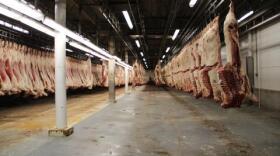To the chagrin of some of the nation's largest farm organizations, the Environmental Protection Agency on Friday forged ahead with a plan to oversee more of the nation's waterways, saying it will enforce new pollution rules in all but 13 states covered by an ongoing court case.
On the day the so-called “Waters of the U.S.” rules, or WOTUS, were set to go into effect, the EPA stuck to the deadline, despite a court order issued late Thursday.
U.S. District Judge Ralph Erickson put a temporary hold on the rule late Thursday, siding with the 13 states that sued the EPA. The state contend the federal agency was overstepping its authority.
Erickson’s ruling means the rules are on hold in Alaska, Arizona, Arkansas, Colorado, Idaho, Missouri, Montana, Nebraska, Nevada, New Mexico, North Dakota, South Dakota and Wyoming.
The EPA said it will enforce the rules, expanding the reach of the Clean Water Act, as scheduled in the other 37 states.
In his ruling, Erickson said that the Environmental Protection Agency had overstepped its bounds.
The “states are likely to succeed in their claim,” he wrote, because it appeared that the EPA violated congressional authority.
Some in farm country have seen the regulations as a federal power grab and cheered the judge’s decision to delay the directives in some states.
“There’s tremendous concern from contractors, from farmers, from county road districts, from cities, from municipalities – tremendous concern about what the rule will mean to them,” said Blake Hurst, president of the Missouri Farm Bureau. “The EPA is totally isolated on this thing and they need to pull it.”
The EPA said it was granted power to regulate rivers and that ensuring tributaries are pollution-free is merely an extension of that authority.
“The Clean Water Rule is fundamental to protecting and restoring the nation’s water resources that are vital for our health, environment, and economy,” the agency wrote in a statement.
The EPA said it will continue to regulate the states covered under the injunction under prior guidelines and that it is considering next steps in litigation.
The agency spent months trying to sell the regulations to farmers, but many did not bite. The American Farm Bureau and the National Cattlemen’s Beef Association are among the farm groups that pledged to fight new water regulation.
Courts in West Virginia and Georgia ruled earlier in the week that they did not have jurisdiction to rule on the lawsuits.











